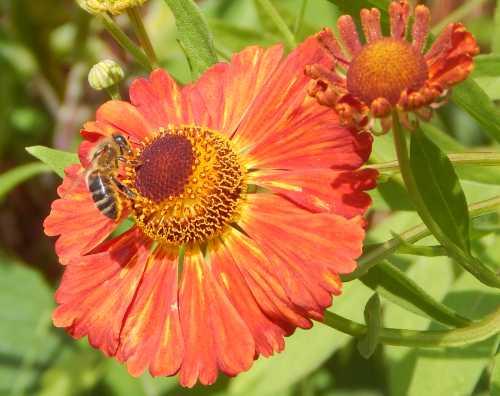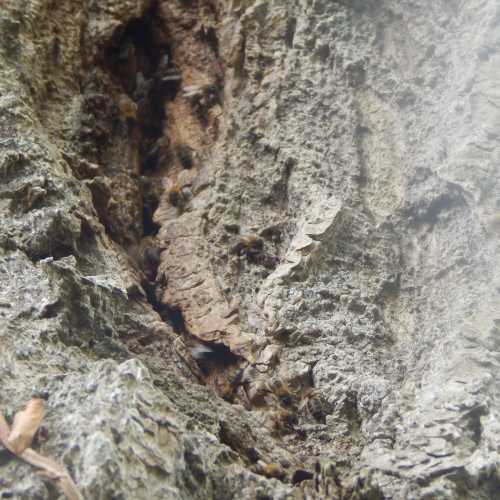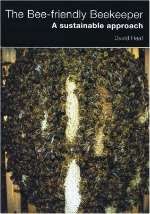Bee Friendly Beekeeping
Bee Friendly Beekeeping - otherwise known as beekeeping practices which are Api-centric, describes the deliberate intention to consider the bees as central to any methods employed by beekeepers.
It attempts to practice beekeeping in a way which 'fits in' with the natural behaviour and needs of the bees themselves, and tries to emulate and/or not interfere with this.
In one sense this may seem very obvious, however, a look at the history of beekeeping shows us that bee hive design and beekeeping practice has tended to focus primarily on the maximisation of honey harvest and ease of collection of honey from the bees.
Api-centric beekeeping may sometimes be referred to as Natural Beekeeping, a growing movement in some countries. Part of its ethos is to embrace the organic movement and keep unnatural chemicals out of the beehive.
Other beekeepers try to combine elements of traditional and api-centric or natural beekeeping.
 Honey bee on sneezeweed flower.
Honey bee on sneezeweed flower.Dr David Heaf is the author of The Bee-friendly Beekeeper, and you can read an interesting interview with him here. His book has been
published by Northern Bee Books (international delivery available). Dr Heaf has also translated 'The People's
Hive' by Abbé Warré from French into English, which you can download
from the links below. You may also be interested to read this interview with author, Phil Chandler, otherwise known as 'The Barefoot Beekeeper'.
More recently, scientist and author, Thomas D Seeley has compiled years of scientific research looking at how bees live and thrive in the wild, and combined this with his own beekeeping experience and evidence gathered from multiple sources, to propose beekeeping practices that will help beekeepers adopt practices that will benefit the honey bee colony, and result in healthier bees. This book is called 'The lives of bees' - you can read my review review here.
 Wild honey bee nest in tree trunk.
Wild honey bee nest in tree trunk.Translation: The People's Hive by Abbé Warré
Download this book, translated inot English by Dr David Heaf.
Read beekeeping tips from other beekeepers and share yours
How To Start Beekeeping
Go to main beekeeping links page.
